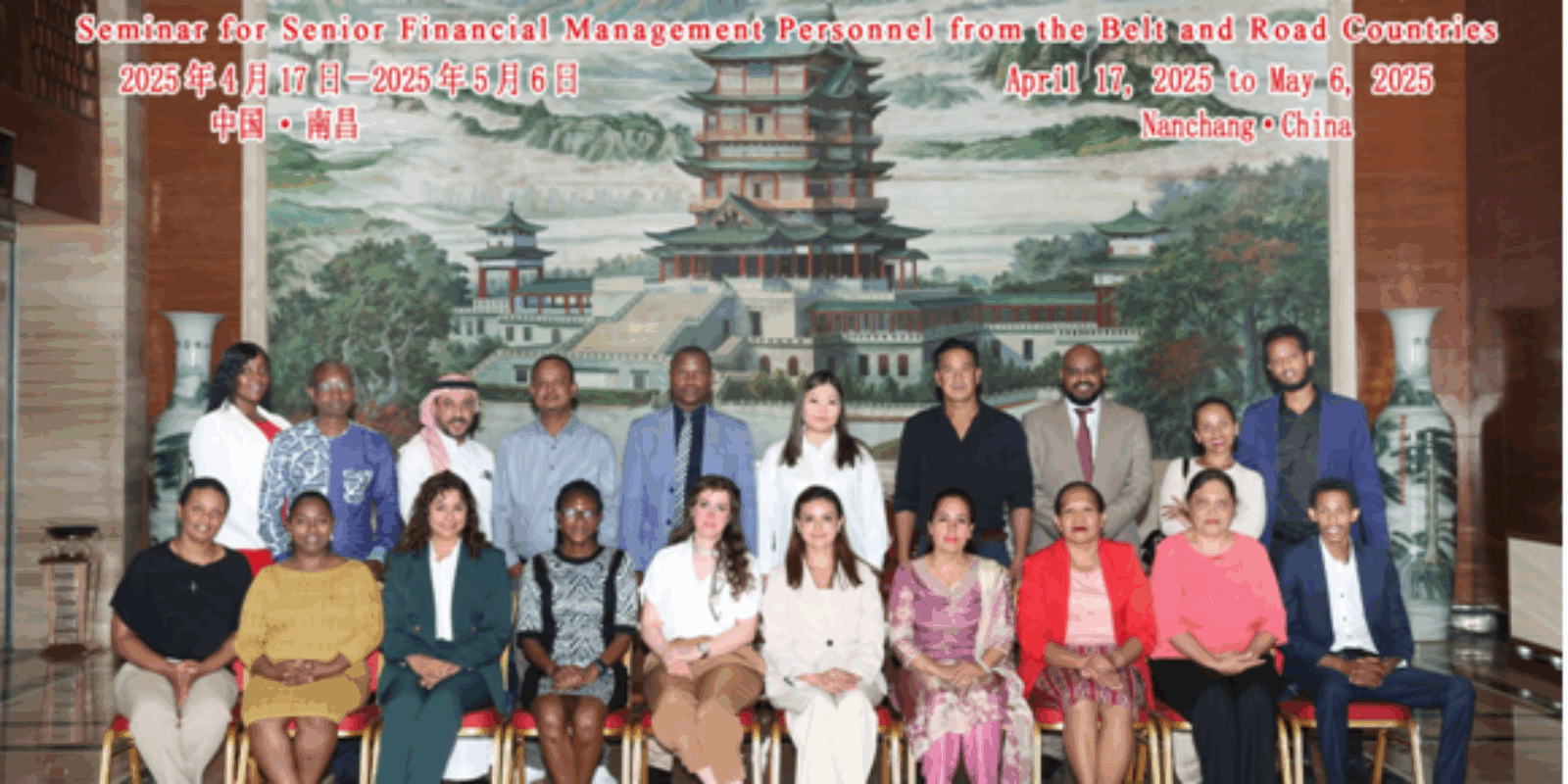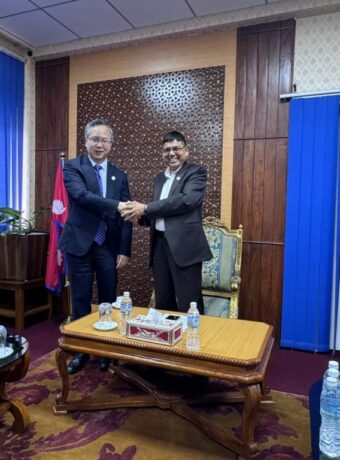Nepal Meets China’s Financial Future

Kathmandu- Four Nepalese professionals recently joined financial experts from across the globe in a dynamic seminar held in China, gaining firsthand exposure to the country’s evolving financial governance and development strategies under the Belt and Road Initiative.
From April 17 to May 6, 2025, four Nepali delegates, Rachhita Aryal, Kreeti Khatiwada, Anusha Nepal, and Krishna Shah Thakuri took part in the “Seminar for Senior Financial Management Personnel from Belt and Road Countries.” The three-week program, hosted in Nanchang, Jiangxi Province, and coordinated by the Jiangxi Vocational College of Foreign Studies, was sponsored by China’s Ministry of Commerce.
The participants were nominated through the Nepal-China Friendship Forum (NCFF), a key organization promoting closer bilateral ties between Nepal and China through professional exchanges, academic collaboration, and cultural diplomacy.
Their involvement marks Nepal’s continued engagement with the Belt and Road Initiative (BRI), China’s ambitious multi-national development strategy aimed at boosting infrastructure, economic integration, and regional cooperation across Asia, Europe, and Africa. This seminar, specifically focused on financial management, is part of broader efforts to enhance capacity building among BRI partner nations.
The seminar served as a melting pot for senior financial professionals, policymakers, and experts from various BRI countries. Through a well-curated blend of lectures, interactive case studies, field trips, and expert discussions, attendees delved into China’s fiscal history and its current financial architecture. The agenda touched on major themes such as fiscal policy formulation, public financial management, the rise of digital finance, and tax reform strategies.
Seasoned academics and practitioners led the sessions, highlighting real-world cases that demonstrated China’s ability to drive development while maintaining financial discipline. These included insights into policy-driven investments, targeted poverty alleviation programs, and sustainable urban infrastructure financing.
The learning wasn’t limited to the lecture halls. Delegates visited an array of key institutions and development sites across Nanchang, Chongqing, Shanghai, and Jinggangshan. Each visit opened a new window into China’s financial systems, technological innovation, and economic planning mechanisms.
Among the memorable stops were the Hongcheng Market in Nanchang, offering a glimpse into the workings of a bustling open economy and the Chongqing Business Vocational College, where financial talent development was in focus. The team also explored Seentao Technology Co. Ltd. in Chongqing, gaining practical knowledge of accounting education tools and software systems.
In Shanghai, the delegation toured Fengyuzhu Culture Technology Co. Ltd., which provided insights into corporate financial practices, and the Shanghai Urban Planning Exhibition Center, a showcase of the city’s strategic vision. At the Nanchang Yonyou Industrial Park, participants learned about enterprise cloud ecosystems and thematic financial services.
Historical and cultural dimensions were woven into the learning experience. Visits to the Jinggangshan Red Army Mint Factory and Sanwan Reorganization Memorial Hall provided context on historical minting technologies and revolutionary financial practices. Meanwhile, a stop at Shenshan Village illuminated China’s grassroots poverty reduction strategies.
The seminar also included exposure to high-tech innovations, like those at Ahead Software Group in the Jinggangshan Digital Economy Park, where participants explored how digital transformation is shaping modern financial management.
For Nepal, this exposure couldn’t have come at a better time. As the country continues to implement fiscal federalism and navigate economic challenges, lessons from China’s experience in long-term planning, financial integration with national goals, and agile policy response offer valuable blueprints.
“It was more than a learning experience. It was an immersion into a different model of governance and strategic thinking,” remarked Rachhita Aryal, who is also the Program Coordinator at NCFF. She noted how the seminar offered deep insights into China’s planning philosophy and the practical ways financial strategies can align with national development priorities. She also emphasized the importance of exchanging views with delegates from other BRI nations, which added another layer of global understanding.
Beyond technical learning, the seminar fostered cultural appreciation. Guided tours to museums, cultural institutions, and heritage sites provided delegates with a broader sense of China’s history, society, and progress. These experiences fostered cross-cultural connections and goodwill between host institutions and international participants.
The Nepal-China Friendship Forum praised the seminar as a meaningful step in both professional development and bilateral relations. In a statement, the Forum stressed the importance of seizing such opportunities for human capital development while also advancing people-to-people diplomacy.
“As China continues to open doors for BRI knowledge exchange, Nepal must be ready to embrace and implement these learnings,” the NCFF said. “Initiatives like this bring not only ideas but actionable solutions to Nepal’s institutional and policy frameworks.”
The Nepali delegates expressed their eagerness to apply their newfound knowledge in shaping Nepal’s financial policies and institutional reforms. They also thanked the Chinese government for facilitating such a collaborative and enriching platform.
As global economies become more interconnected, platforms like the Belt and Road Financial Management Seminar prove essential. They offer countries like Nepal a chance to adapt, innovate, and grow through shared learning and regional cooperation.
By: Rachhita Aryal
Program Coordinator at the Nepal-China Friendship Forum






